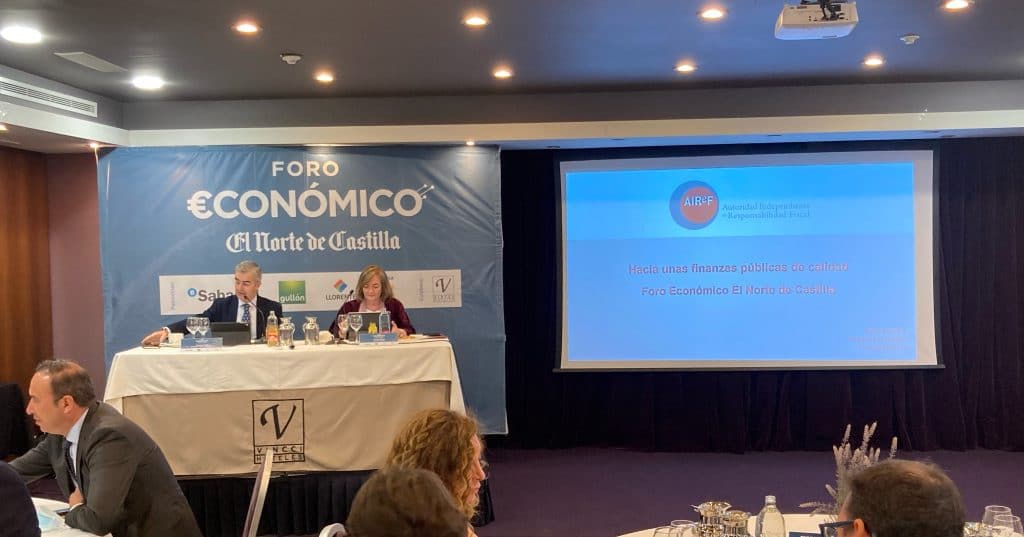The President of the Independent Authority for Fiscal Responsibility (AIReF), Cristina Herrero, participated today in the “El Norte de Castilla” Economic Forum and highlighted the serious commitment that the Autonomous Regions are showing to evaluation, as they are entrusting the institution with the analysis of critical policies, such as healthcare and active employment policies, thus contributing to building up AIReF’s evaluative muscle.
Specifically, the President of AIReF stated that Castile and Leon has commissioned evaluations on several sectoral policies, such as active employment policies, education, industrial policy and institutional advertising. The regional government also commissioned a project to institutionalise evaluation, which was also supported by European institutions and the OECD.
Since 2017, ten regions have already commissioned a total of 16 evaluations from AIReF. Seven evaluations have been completed to date, four are currently under development, while the remaining five have recently been commissioned.
At a national level, Cristina Herrero said that the Spending Review formalised in 2017 represented a turning point for AIReF’s evaluation activity, which has been consolidated in Component 29 of the Recovery, Transformation and Resilience Plan (RTRP). This component recognises the usefulness of AIReF’s evaluations and undertakes to give continuity and permanence to the spending review exercises by creating a permanent division at AIReF.
Beyond Component 29, the President noted that the institutionalisation of evaluation is a national challenge that is reflected in Component 11 of the RTRP, on the modernisation of the General Government. This is the context of the draft Bill on Evaluation approved by the Government. Although it only refers to the Central State Administration and is focused on ex-ante evaluation, this draft bill defines evaluation concepts and principles and their institutionalisation in the General Government, such as access to data, indicator systems and the follow-up of recommendations.
In addition, the new law also provides for the creation of a body – the State Agency for the Evaluation of Public Policies – to promote the culture of evaluation in the General Government as a whole.
The role of AIReF
This is compatible with AIReF’s evaluation activity. In fact, the RTRP also recognises the need for the different evaluations to be complementary. In this regard, Cristina Herrero highlighted the characteristics of the institution that favour its evaluating role, such as its independence, the synergies that exist with the fiscal supervision function, access to all levels of the GG, broad thematic coverage thanks to the fact that it has highly-technical multidisciplinary teams and the empirical basis and rigour of the evaluations it carries out.
Looking ahead, Cristina Herrero stressed the importance of establishing an institutional framework to define the role of the agents involved in evaluation, ensure the analytical and evaluation capacity of the various bodies, plan the evaluation, ensure the production of, and access to, the data necessary to evaluate and promote the dissemination of the evaluations and access to them so that they may have a major impact. In order to ensure the planning, dialogue and coordination required, the participation of bodies such as the Council of Fiscal and Financial Policy (CPFF), the National Commission for Local Administration (CNAL) and the Sectoral Conferences was considered advisable.
In conclusion, the President of AIReF stressed the importance of focusing on the quality of public finances, which are currently at the top of the European and national agenda despite the economic context. In her view, the quality of public finances contributes to their sustainability by providing verified evidence to see whether policies meet the objectives for which they were designed, the reasons why these policies sometimes do not achieve their purposes and whether there is a more effective and efficient way to achieve the objectives of each policy. It also improves transparency and democratic quality by providing rigorous and unbiased information on the results of public action, alternatives and management challenges.






